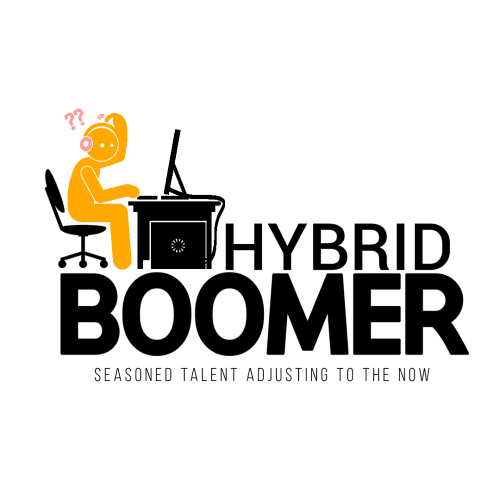The Mind is a Terrible Thing to Lose
Former Vice President of the United States, Dan Quayle, once mistakenly quoted “a mind is a terrible thing to lose”. At the time the quote was thought of as funny, but the mind is a terrible thing to lose. And it is not funny when it happens.
The mental processes and abilities that enable us to acquire, process, store, and use information is referred to as our cognitive functions. They are essential to everyday activities in our daily lives, especially the ability to retain new information or remember something that we once learned. This is our short-term memory and our long-term memory. Cognitive issues can impact one or both.
Symptoms of Issues with the Brain
A person who is experiencing symptoms of issues with the mind can have problems focusing or sustaining attention. They cannot shift attention between tasks enough to finish a sentence during a conversation. Starting a statement only to drop it mid-sentence because they forgot what the conversation was about is very common.
Another symptom can involve the higher-level processes of the mind that help us to plan daily activities, set goals, and create a structured approach to tasks. A person can appear disorganized and overwhelmed by responsibilities. Having a sense of how long it will take to complete a task or even adhere to a schedule is a struggle.
Witnessing a Person Experiencing Issues with the Mind
Witnessing a person experiencing issues with the mind can be an unpleasant and sad situation. This is especially true of close friends or family members who are having social and interpersonal difficulties. You might find them wearing shoes that don’t’ match, they might not know what to eat or when they are full, how to take care of their personal hygiene, or to flush the toilet after use. As well, discussing a TV show, a recent event, a family affair, or anything that you once had in common is almost impossible. The interest is no longer there because the mind cannot recall it. And, what’s painful to witness is that the person is unable to express themselves in a conversation.
Social and interpersonal difficulties impact how we interact with others. It includes simple actions like understanding appropriate behaviors, manners, and etiquette. It is not unusual to see someone mis-direct or express unnecessary anger towards a Caregiver. They have seemingly lost themselves, even while their body is still alive. The mind is a terrible thing to lose because the person that it is happening to don’t realize that they are sick. Asked if they are ok, they will often declare that they are doing just fine.
The Causes of Problems with the Mind
As we age it is normal to forget some things or to be slow to react to or retain information. But studies on aging by the University of California San Francisco show that there is only a subtle decline of the mind with normal aging. They say that “vocabulary, reading and verbal reasoning remain unchanged or even improve during the aging process”. The causes of problems with the mind or memory loss have more to do with abnormal things, like cancer treatment, concussion or head trauma, brain infections, major surgery or severe illness, stroke, multiple sclerosis, or dementia. A doctor’s visit can help to pinpoint exactly what happened and the appropriate treatment.
#mc_embed_signup{background:#fff; clear:left; font:14px Helvetica,Arial,sans-serif; width:300px;}
/* Add your own Mailchimp form style overrides in your site stylesheet or in this style block.
We recommend Moving this block and the preceding CSS link to the HEAD of your HTML file. */
(function($) {window.fnames = new Array(); window.ftypes = new Array();fnames[0]=’EMAIL’;ftypes[0]=’email’;fnames[1]=’FNAME’;ftypes[1]=’text’;fnames[2]=’LNAME’;ftypes[2]=’text’;fnames[3]=’ADDRESS’;ftypes[3]=’address’;fnames[4]=’PHONE’;ftypes[4]=’phone’;fnames[5]=’BIRTHDAY’;ftypes[5]=’birthday’;}(jQuery));var $mcj = jQuery.noConflict(true);
Caring for Someone Who is Losing their Mind
In caring for someone who is losing their mind you will need to give them lots of support. Start by bringing them into familiar surroundings, especially their own homes. Show them things that they might recognize from before their issues started like photos, money, food, or play songs that they once heard. Encourage independence in caring for themselves by writing down when they should take medicines or do other daily tasks. Writing it down is very important. Assist them with getting their day started, but don’t do it all for them. The brain will need to be retrained to use its own functional capacity. The ability is still there, but it needs a nudge of the familiar to get going again. If safety or nutrition becomes too big of an issue for you to handle there are care facilities that can assist you short or long term.
There Is Hope
The mind is a terrible thing to lose. While cognitive issues can vary widely in severity and impact, there is hope. Seek help from trained professionals who can offer interventions, therapies, and accommodations to improve the quality of life and functioning of the mind. Better still, Hybrid Boomers, keep the mind stimulated by doing the things to keep you motivated to live. Read my blogs on returning to school, choose a good book from The Hybrid Reading List, or check out my list of 50 Fun Things For A Hybrid Boomer To Do.
Show your pride in being a Hybrid Boomer – visit my online store.
If you found this information helpful, click the button below to leave a donation to help support the site. I appreciate your visit!
![]()
Oh, and don’t forget to bookmark this site to come back often!
View more Hybrid Boomer Blogs
Disclaimer: A small fee is earned from the affiliated links featured on this site
The post The Mind is a Terrible Thing to Lose appeared first on Hybrid Boomer.





























Already a Member? Login Here.
Not Yet a Member? Join the Conversation Today!